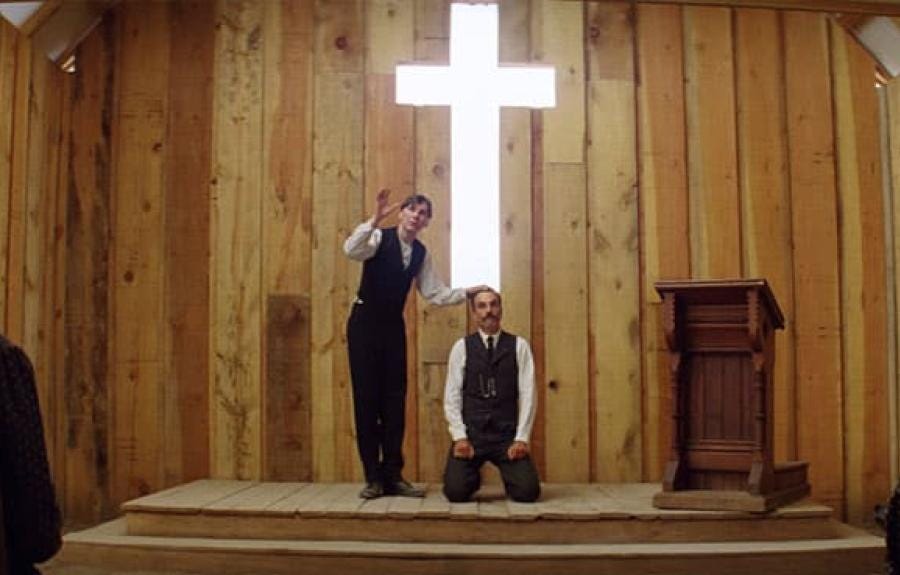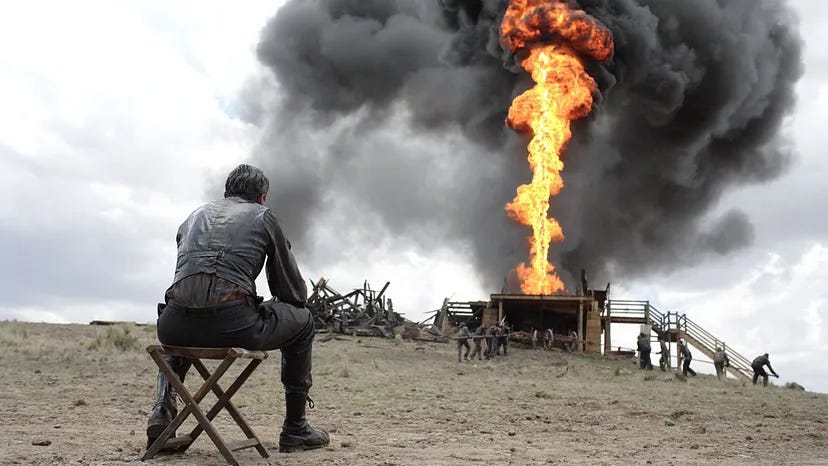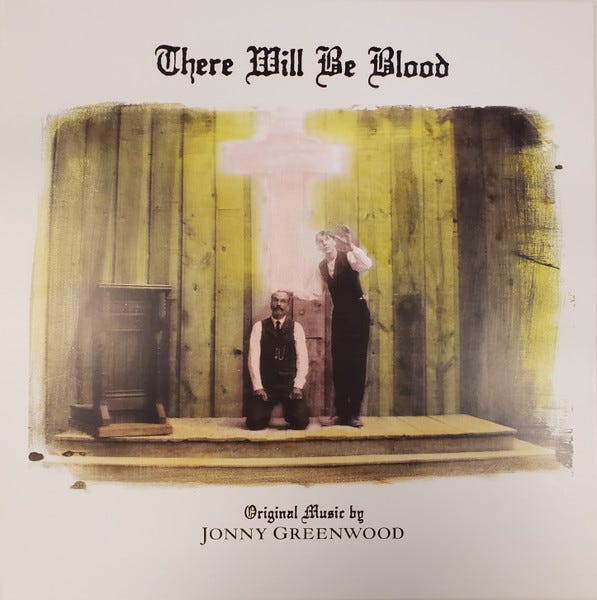There Will Be Blood, directed by Paul Thomas Anderson and released in 2007, is a cinematic masterpiece that delves deep into the themes of ambition, greed, and the corrupting power of oil in early 20th century America. Starring Daniel Day-Lewis in a career-defining role, the film is an adaptation of Upton Sinclair's novel Oil! Though loosely based on Sinclair's work, Anderson's film transforms the source material into a complex, character-driven exploration of human nature and the American Dream.
The narrative centers around Daniel Plainview (Day-Lewis), a ruthless oilman whose insatiable ambition and moral decay drive the film. The story begins in the late 19th century, portraying Plainview’s humble beginnings as a silver prospector. After discovering oil, he transitions into a formidable oil tycoon, determined to expand his empire at any cost. Plainview's character is a personification of raw capitalism, showcasing both its potentials and perils. His journey is marked by a relentless pursuit of wealth and power, often at the expense of his humanity and relationships.
One of the film's central conflicts is between Plainview and Eli Sunday (Paul Dano), a young, fervent preacher who seeks to harness the wealth of oil to build his church. Eli represents a different kind of ambition, driven by religious zeal and a desire for influence over his community. The interactions between Plainview and Eli are charged with tension, as both men seek dominance over each other and their surroundings. Their rivalry is emblematic of the broader struggle between industrial capitalism and organized religion, each vying for control over the hearts and minds of the people.
The film's cinematography, by Robert Elswit, is instrumental in establishing its tone and atmosphere. The expansive, desolate landscapes of the American West serve as a stark backdrop to the human drama unfolding within them. The visual style is both grand and intimate, capturing the vastness of Plainview's ambitions and the isolation that accompanies his success. The use of natural light and shadow enhances the film's realism, grounding the story in a tangible world that feels both historical and immediate.
Jonny Greenwood’s haunting score further elevates the film, with its dissonant strings and eerie melodies underscoring the tension and unease that pervade the narrative. The music is almost a character in itself, reflecting Plainview's inner turmoil and the ominous forces at play in his quest for domination.
Daniel Day-Lewis’s performance as Daniel Plainview is nothing short of extraordinary. His portrayal of Plainview is intense and multifaceted, capturing the character’s charisma, cunning, and underlying menace. Day-Lewis’s commitment to the role is evident in every scene, from his physicality to his meticulously crafted speech patterns. His ability to convey both the external confidence and internal disintegration of Plainview is a testament to his skill as an actor.
The film's thematic richness lies in its exploration of the corrosive effects of unchecked ambition. Plainview’s rise to power is marked by deceit, manipulation, and violence, revealing the darker side of the American Dream. His relationships, particularly with his adopted son H.W. (Dillon Freasier) and Eli Sunday, deteriorate as his obsession with control and wealth consumes him. The film suggests that the pursuit of success, when divorced from ethical considerations, leads to isolation and destruction.
There Will Be Blood also offers a critique of the social and economic structures of the time. The rapid industrialization and exploitation of natural resources are depicted as both a source of immense wealth and profound moral decay. The film does not shy away from showing the human cost of progress, as workers suffer and communities are disrupted in the wake of Plainview’s oil ventures.
There Will Be Blood is a profound and powerful examination of human ambition and its consequences. Through its compelling narrative, exceptional performances, and masterful direction, the film provides a stark portrayal of the American ethos at the turn of the century. It stands as a poignant reminder of the complexities and perils inherent in the pursuit of power and wealth, making it a timeless and relevant piece of cinema.
Open spaces.
The music of There Will Be Blood.
The music in There Will Be Blood, composed by Jonny Greenwood, is integral to the film’s atmospheric and psychological depth. Greenwood, best known as the lead guitarist of the band Radiohead, crafted a score that is both innovative and haunting, enhancing the narrative and emotional weight of Paul Thomas Anderson’s 2007 film. The music is a vital character in itself, amplifying the themes of ambition, greed, and moral decay that define the story.
From the opening frames, Greenwood’s music sets a tone of unease and tension. The film begins with a long, dialogue-free sequence showing Daniel Plainview’s solitary work as a silver prospector. Here, Greenwood’s composition, Henry Plainview, establishes an eerie and foreboding mood. The dissonant strings and minimalist approach create an atmosphere of desolation and struggle, mirroring Plainview’s harsh and solitary existence. This choice to forgo dialogue and rely on music for emotional and narrative drive underscores the power of Greenwood’s score.
As the story progresses and Plainview’s fortunes rise, Greenwood’s music continues to play a critical role. The score often contrasts starkly with the visual grandeur of the American West, using atonal and experimental elements to reflect the inner turmoil of the characters. In scenes where Plainview is making significant strides in his oil business, the music is often unsettling, reminding the audience of the darker undercurrents of his ambition.
One of the most iconic musical moments in the film occurs during the scene where the first oil well erupts. As oil shoots into the sky and a fire ensues, the track Convergence plays. This piece combines chaotic, clashing strings with a throbbing undercurrent, perfectly capturing the violence and intensity of the moment. The music here is not merely a backdrop but a visceral experience, pulling the audience into the chaos and amplifying the dramatic impact of the scene. The discordant music also foreshadows the catastrophic consequences of Plainview’s unchecked ambition.
Greenwood’s use of leitmotifs and recurring musical themes adds to the film’s cohesion and emotional resonance. The recurring motifs create a sense of continuity and deepen the audience’s engagement with the characters’ journeys. For instance, the motif associated with Eli Sunday often includes more subdued, yet equally unsettling, musical elements. This subtly underscores Eli’s manipulative nature and the simmering tension between him and Plainview.
Moreover, Greenwood’s score draws inspiration from classical composers, most notably Krzysztof Penderecki and György Ligeti, whose avant-garde styles influenced the film’s musical landscape. This inspiration is evident in the use of microtonal clusters and unconventional instrumentation, lending the score a timeless and otherworldly quality. This classical influence bridges the film’s historical setting with a modern, almost apocalyptic soundscape, enhancing the timelessness and universality of its themes.
The final scene of the film, which features the piece Prospectors Quartet, exemplifies the culmination of Greenwood’s musical vision. As Plainview commits his final act of violence against Eli Sunday, the music swells with a haunting, dirge-like quality. The piece is both grand and somber, reflecting the tragic end of Plainview’s journey. The score here does not just accompany the visuals but intensifies the audience’s sense of Plainview’s ultimate isolation and the hollow victory of his achievements.
Jonny Greenwood’s music in There Will Be Blood is a masterful component of the film, enhancing its emotional and narrative depth. The score’s innovative use of dissonance, rhythm, and thematic motifs creates an immersive and unsettling atmosphere that perfectly aligns with the film’s exploration of ambition, power, and moral decay. Greenwood’s compositions are not mere accompaniments but integral elements that elevate the film to a profound cinematic experience. The music stands as a testament to the power of film scoring in shaping a film’s identity and emotional impact, making There Will Be Blood a true masterpiece of modern cinema.









A great essay (thank you for the breadcrumb trail, @feastsandfables). I'm a huge fan of PT Anderson's films, and TWBB no exception (my favourite would be Magnolia though). I've been waiting for my daughter to finish her film A-level so that we could sit down to enjoy this together without it feeling like work for her! We watch Punch Drunk Love together a few months back which she loved.
It's such a powerful film, as you say, and Greenwood's score such a compelling part of it. I love that he kept on sending PTA ideas and he would keep on sending them back saying 'too nice' or 'too clean'. He wanted the discord and the unease and all of that glossy black greed. It's wonderful when a director and a composer can collaborate like this. I'm sure you have seen that wonderful clip of Angelo Badalamenti explaining how David Lynch pushed and pushed him towards the theme tune for Twin Peaks? I love to think that these kind of relationships always work that way!
Great post.
Thank you for choosing next up on movie night. 🍿I have a feeling this will land in a very strange unsettling way as I’ve watched the crazy train of ambition pass before my eyes enough to wonder at what point was the luggage labeled “sanity” abandoned. How did I even get a seat offering from where I stood? As I tell the chihuahuas, “we keep walking.” - Before this film, I need to center to peace. - Your writing on this is wonderful. Thank you 💐